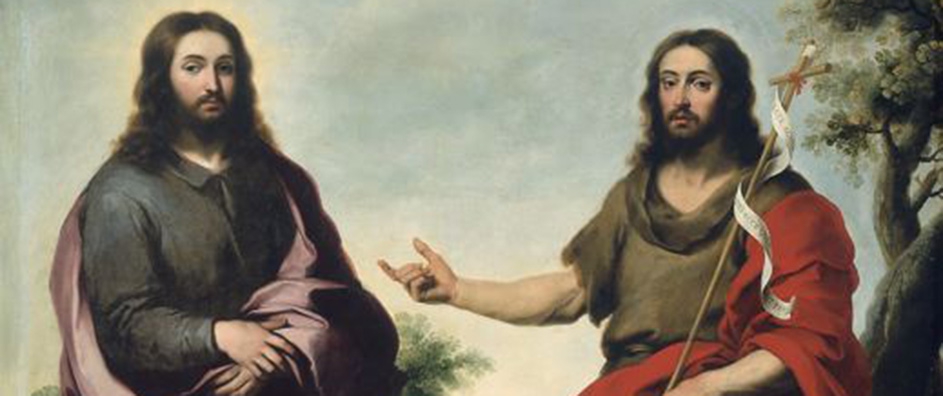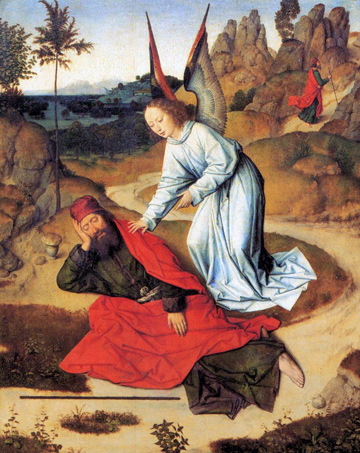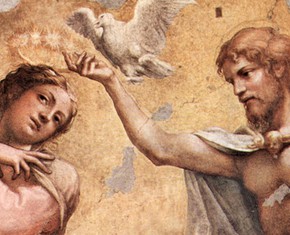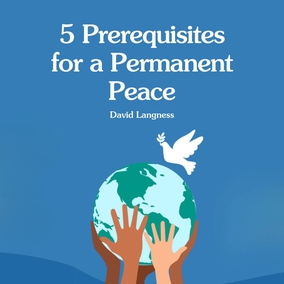The views expressed in our content reflect individual perspectives and do not represent the authoritative views of the Baha'i Faith.
In the Divine Scriptures and Holy Books “return” is spoken of, but the ignorant have not understood the meaning, and those who believed in reincarnation have made conjectures on the subject. For what the divine Prophets meant by “return” is not the return of the essence, but that of the qualities; it is not the return of the Manifestation, but that of the perfections. In the Gospel it says that John, the son of Zacharias, is Elias. These words do not mean the return of the rational soul and personality of Elias in the body of John, but rather that the perfections and qualities of Elias were manifested and appeared in John. – Abdu’l-Baha, Some Answered Questions, p. 288.
In the Bible, John the Baptist was asked three distinct questions:
1. Are you the Messiah? (John 1:20, King James Version)
2. Are you Elias? (John 1:21)
3. Are you that Prophet? (John 1:21)
Why? These were jigsaw pieces that I could not puzzle together.
The meaning of these three questions did not become clear to me until I heard a lecture by David Flusser, of the Hebrew University of Jerusalem. Flusser explained that these three questions were evidence that not one, but three messiahs were expected by some Jewish groups at the time of John the Baptist: (1) a “royal messiah”; (2) a “priestly messiah”; and (3) a “prophetic messiah.”
According to Flusser, these three eschatological figures alluded to the “three offices” (tria munera) that were first and foremost in Jewish society. Flusser then cited this passage from the Manual of Discipline (or Rule of the Community):
They should not depart from any counsel of the law in order to walk in complete stubbornness of their heart, but instead shall be ruled by the first directives which the men of the community began to be taught until [1] the prophet comes, and the [2] messiahs of Aaron and [3] Israel. – IQS 9:11
Another Dead Sea scroll, 4QTestimonia (4Q175) refers to these three end-time saviors through a series of proof-texts: Prophet: Deut. 18:18-19; Priest: Deut. 33:8–11; King: Num. 24:15–17.
While scholarship on Qumran messianism is split between diarchic and triarchic messianism, it’s easy to recognize that three end-time deliverers are expected here, where
1. King David was the paradigm for the royal messiah.
2. Elijah was the paradigm for the priestly messiah. (Malachi 3:23–24, for the prophecy of “Elijah redivivus” — i.e. the return of Elijah.)
3. Moses was the paradigm for the prophetic messiah. (Deuteronomy 18:18, i.e. “Moses redivivus.”)
A distant echo of this expectation of three messiahs—who perform complementary functions within the eschatological drama—may be seen the gospel Transfiguration account:
1 And after six days Jesus taketh Peter, James, and John his brother, and bringeth them up into an high mountain apart,
2 And was transfigured before them: and his face did shine as the sun, and his raiment was white as the light.
3 And, behold, there appeared unto them Moses and Elias talking with him.
4 Then answered Peter, and said unto Jesus, Lord, it is good for us to be here: if thou wilt, let us make here three tabernacles; one for thee, and one for Moses, and one for Elias.
5 While he yet spake, behold, a bright cloud overshadowed them: and behold a voice out of the cloud, which said, This is my beloved Son, in whom I am well pleased; hear ye him.
6 And when the disciples heard it, they fell on their face, and were sore afraid.
7 And Jesus came and touched them, and said, Arise, and be not afraid.
8 And when they had lifted up their eyes, they saw no man, save Jesus only. – Matthew 17:1–8.
Here, Peter implies that there are three messiahs who should be honored with altars. But the voice out of heaven corrects Peter, stressing that there is only one Messiah, who is Jesus Christ alone.
So Jesus is really three messiahs in one — a prophet, a priest and a king. In that same lecture that I heard years ago, David Flusser said that, notwithstanding the fact that Qumran (Dead Sea) “Covenanters” expected three messiahs, the early Christians combined all three into one, i.e. Jesus Christ.

















Comments
Sign in or create an account
Continue with Googleor